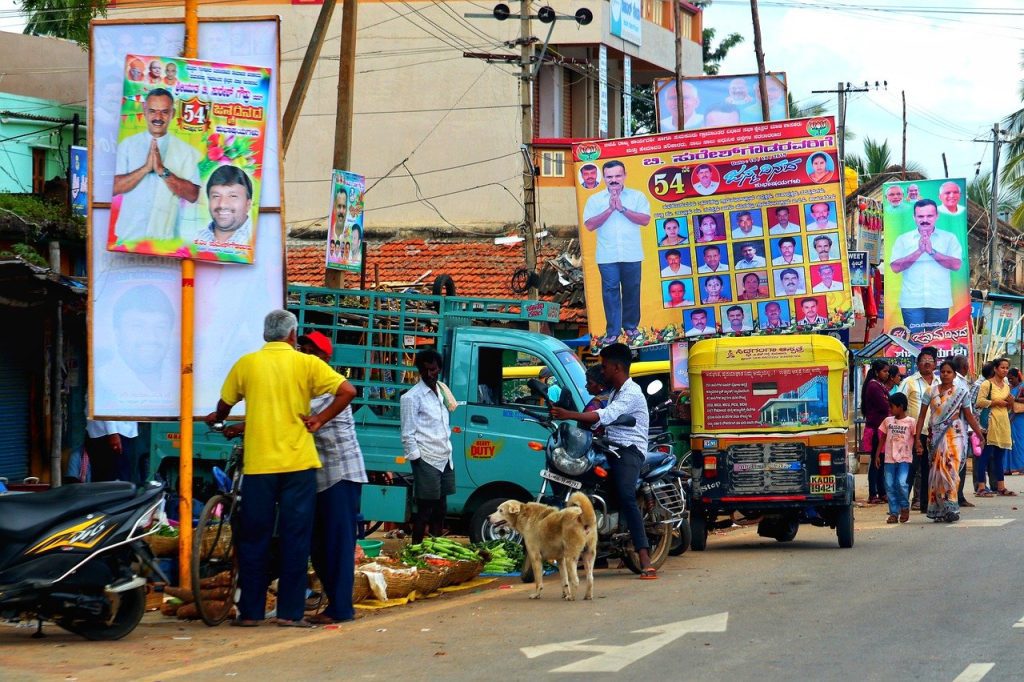India’s Election And Modi’s BJP
The effects of India’s recent widespread election have disseminated shockwaves via the political landscape, with Prime Minister Narendra Modi’s Bharatiya Janata Party (BJP) falling short of an expected landslide victory. While the BJP-led National Democratic Alliance (NDA) has secured a majority within the 543-seat lower house of parliament, the tally is appropriately below the birthday celebration’s ambitious goal of more than four hundred seats. This unexpected outcome has considerable implications for India’s governance and policy direction in the coming years.
Table of Contents
A Narrower Mandate for Modi in India‘s Election
The BJP’s performance in the election represents an outstanding setback for Prime Minister Modi, who had set his sights on a decisive victory to cement his birthday party’s dominance. The reduced seat dependency of the birthday celebration means that Modi will rely more heavily on his coalition partners, which include local leaders like N. Chandrababu Naidu and Nitish Kumar, to manipulate and pass regulations successfully. This shift far away from the BJP’s previous ability to behave unilaterally may make it want to adopt an extra collaborative method of policymaking because the birthday party will need to deal with the interests and demands of its allies.
Factors behind the Unexpected Results
Analysts have attributed the BJP’s weaker-than-anticipated performance to various things, including the celebration’s terrible showing in the critical nation of Uttar Pradesh, which sends eighty lawmakers to parliament. The BJP The BJP now leads only 33 seats in the kingdom, a decrease from the 62 seats it won in 2019. ally, troubles like the unemployment disaster and rising inflation appear to have been higher on the electorate’s minds than the BJP’s campaign messaging, which had centered on India’s financial expansion and growing international stature, in addition to trying to enchant the Hindu majority.
The inauguration of the grand temple to the Hindu god-king Lord Ram, which Modi had championed, also did not offer the anticipated rise to the BJP’s fortunes, suggesting that the party’s divisive rhetoric and guidelines targeting religious minorities may additionally have alienated some segments of the citizens.
A Message from the People
The Indian National Congress birthday party, leading the opposition, has interpreted the election consequences as a rebuke to Modi’s financial record and polarizing politics. Rahul Gandhi, the scion of the Nehru-Gandhi dynasty and a distinguished Congress chief stated that the figures constitute a “message from human beings” and a rejection of the BJP’s divisive approach.
Some individuals find solace in the decrease in BJP seats, as they fear that a third term for Modi’s Hindu nationalist party could exacerbate the country’s non-secular divisions and undermine its secular foundations. As one voter expressed, “We need to look at this United States of America as soon as it becomes. This U.S. belongs to Hindus, Muslims, Sikhs, and Christians. Everyone wants to live in harmony. We want peace in this country.”
Navigating the Path Forward: India’s Election
The BJP’s declining majority indicates that Modi will likely adopt a more collaborative and inclusive approach to governance. He will collaborate closely with his coalition partners to address the pressing issues facing the United States. This may involve a departure from the party’s previous focus on unilateral decision-making and a greater emphasis on consensus-building and compromise.
Moreover, the election outcomes may spark the BJP to reconsider its divisive rhetoric and rules, particularly the ones targeting non-secular minorities, to enchant a broader cross-section of the citizens. The birthday party will want to illustrate a renewed dedication to addressing the financial concerns of human beings, including the unemployment disaster and growing inflation, in hopes of regaining the trust and guidance of the voters.


Implications for India’s democracy
The remarkable outcome of the election serves as a testament to the resilience and vibrancy of India’s democratic process. Despite the BJP’s dominant role and the birthday party’s efforts to shape the narrative, the electorate has exercised their power to hold the government responsible and express their preference for a more inclusive and responsive political panorama.
As India navigates this new political panorama, it will be essential for all parties to uphold the concepts of democracy, appreciate the people’s will, and work collaboratively to cope with the pressing and demanding situations going through the kingdom. The path ahead may not be smooth, but the election results have sent a clear message that the Indian voters value harmony, concord, and a central authority that prioritizes the wishes and issues of all its citizens.
Engaging with the world
India’s international standing has grown significantly under Modi’s leadership, and the United States’ international partners could observe as the new political dynamics unfold. While the BJP’s decreased majority may additionally initially enhance issues about policy continuity and stability, India must keep its commitment to enticing the international arena and upholding its role as a critical participant.
As India embarks on this new chapter of bankruptcy, residents of the United States and the international network may closely monitor the authorities’ moves and selections. The route beforehand can be challenging; however, with a renewed awareness of inclusivity, consensus-building, and addressing urgent human concerns, India’s democracy can emerge more robust and resilient.
Conclusion: India’s Election
The results of India’s current general election have presented a shocking setback to Prime Minister Narendra Modi and his BJP birthday party, with the celebration falling short of its anticipated landslide victory. This outcome has significant implications for India’s governance and policy direction, as Modi will now need to rely more closely on his coalition partners to navigate the political panorama.
Factors such as the BJP’s poor performance in key states, the prioritization of financial issues over divisive rhetoric, and the competition’s interpretation of the outcomes as a rebuke to Modi’s regulations all contributed to this sudden turn of events. As India moves forward, it will be vital for the authorities to adopt a more collaborative and inclusive technique, addressing the desires and issues of all its residents while upholding the concepts of democracy and secularism.


Amjad Mustafa, the owner and author of Keen2Know, is a highly qualified individual with strong experience in technical engineering. He is an experienced professional with a variety of business, technology, and car knowledge. His academic background prepared him for a diverse career and established him as a prominent figure at the intersection of these rapidly evolving industries.



